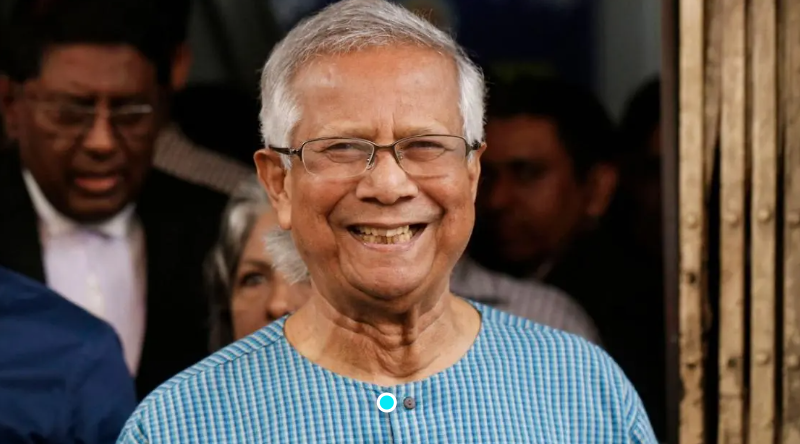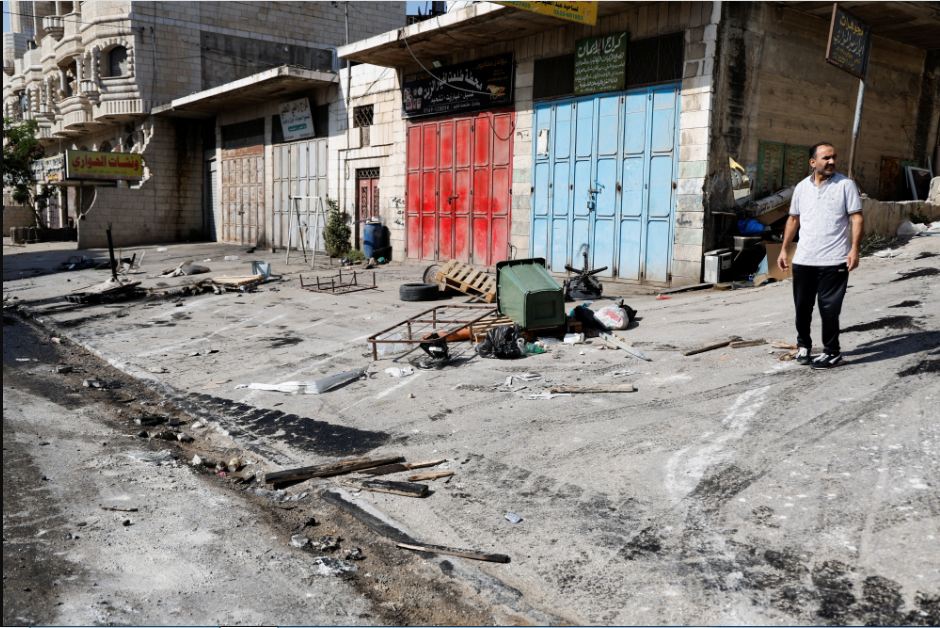When the Nobel Peace Prize Becomes a Farce: A World Still Yearning for True Peace
Bangladesh will not be deceived by borrowed prestige. Nor will it forgive betrayal of its sacred destiny.
In the hierarchy of global honours, few distinctions have commanded as much reverence as the Nobel Peace Prize. Established in 1901 according to the will of Alfred Nobel, the Prize was conceived as a tribute to those who strove for the fraternity of nations, the reduction or abolition of standing armies, and the promotion of peace over war.
For decades, it symbolised not merely recognition, but a clarion call to moral leadership—a testament to humanity’s capacity to transcend violence with conscience, humility and courage. Yet, in our present time, the Peace Prize is increasingly not of the nobility not losing it as a sacred accolade, but also as an ornament of geopolitical performance—a gilded endorsement bestowed often to appease global powers, sanctify political narratives or embellish diplomatic theatre.
The Case of Muhammad Yunus and the Loss of National Trust
No example illustrates this tragic dissonance more painfully for Bangladesh than the figure of Dr. Muhammad Yunus, the nation’s sole Nobel Peace laureate. Once celebrated for the model of microcredit under cloak-and-dagger of manipulation and the rhetoric of poverty alleviation, Yunus today stands as a deeply polarising figure—regarded by many Bangladesh’s people not as a pioneer of social uplift, but as an architect of manipulation, financial exploitation and political intrigue.
His legacy, instead of strengthening social peace, has been seen to align with the direful foreign factions and forces that undermined democratic stability and the sacred aspirations of the Liberation War of 1971.
At this pivotal moment in Bangladesh’s contemporary history, Yunus is not remembered as a symbol of principled peace, but as a man who allowed foreign power networks and private ambition to overshadow the national conscience. Thus, the Nobel Peace Prize awarded to him has come to represent a stark and discomforting paradox: global prestige divorced from moral accountability. The medallion glitters—but its glow conceals shadows.
Political theorist Peiman Salehi offers a piercing interpretation: today, the Peace Prize is awarded not to those who challenge systems of domination, but to those who help make empire comfortable. Peace, in this modern architecture, has become negotiable—compliant, symbolic, and cosmetic.
And when peace becomes merely the illusion of calm rather than the triumph of justice, the trophy itself becomes meaningless.
When the Prize Still Meant Something
There was a time when the Nobel Peace Prize resonated with authenticity. When the first laureates—Henri Dunant, the founder of the Red Cross, and Frédéric Passy, a tireless advocate of international arbitration—were honoured, their recognition arose not from political expediency but from humanitarian transformation. Their work echoed conscience, sacrifice and the fundamental belief that humanity must rise above barbarism.
Later laureates such as Elie Wiesel embodied this moral vocation. “I accept this great honour on behalf of the many who perished,” he said, reminding the world that memory must prevent the repetition of atrocity. In such moments, the Prize served as a beacon of ethical clarity, not a tool of global branding.
The Gradual Descent
However, scholars such as Fredrik Heffermehl have rigorously shown that the Peace Prize has, over the past century, strayed from Nobel’s original criteria. Nearly half the awards conferred since the Second World War, he argues, do not conform to Nobel’s explicit mandate of demilitarisation and anti-imperial peace. The Prize has often rewarded heads of state whose involvement in war and coercive diplomacy contradicts the very ideal they were honoured for.
Critics have lamented that the Prize has shifted from recognizing courageous dissent to incentivizing diplomatic decorum. Peace has become an ill performance, not a principle. The honour often celebrates ceasefire photography rather than the dismantling of violence itself. The air of sanctity surrounding the Prize has increasingly dissipated, replaced by cynicism and intellectual disquiet.
Indeed, one commentator suggested renaming it “The Global Order De-Stabilization Prize”—a sarcastic epithet symbolizing how the award is frequently used to fortify the status quo rather than to challenge injustices that perpetuate conflict.
The World’s Growing Demand for an Alternative
If the Nobel Peace Prize can no longer be relied upon as a faithful steward of global moral conscience, then we must ask: Is the world not urgently in need of a new way to honour peace? A new prize—one grounded not in diplomacy and political convenience, but in integrity, justice, and transformative compassion?
Such a new award must be built on three unshakeable pillars:
- Integrity and Transparency
The criteria for recognition must be unambiguous, accountable and rooted in verifiable contribution—not reputation, lobbying networks or geopolitical alignment. - Justice as the Foundation of Peace
As Martin Luther King Jr. taught us, peace does not mean the absence of conflict—it means the presence of justice. One cannot reward peace where injustice is left intact. - Recognition of the Unheard and the Unseen
Peace is most often built by those who do their work quietly—community organizers, women mediators, indigenous & minorities defenders, grassroots activists. The award must centre them—not the well-polished foxy people like Yunus who receive applause and cameras.
A Vision for the Future: The Global Peace Integrity Award
Let us imagine an annual Global Peace Integrity Award (GPIA). Its selection committee would be composed of conflict survivors, human rights advocates, social workers and scholars—individuals who understand peace not as theory, but as struggle. Recipients would be chosen only when their work has measurably reduced violence, restored dignity or strengthened justice. Fanfare would be unnecessary. Authenticity would be the source of prestige.
Such a prize would accomplish what the Nobel once promised: it would serve as a moral compass.
Lessons from the Nobel’s Decline
Even the Nobel Committee itself has acknowledged its limitations. Former Secretary Geir Lundestad admitted, “If the purpose of the Nobel Peace Prize had been to establish peace all over the world, it would clearly have failed.”
Recognition is not transformation. Applause is not peace.
Desmond Tutu once reflected that the Prize opened doors—but he also implied that it placed him inside the same halls of power where compromise and negotiation overshadow ideals. The paradox is clear: awards can either amplify moral truth—or neutralise it.
Bangladesh’s Final Word
And so, we return to Muhammad Yunus. His Nobel medallion cannot erase or overshadow the wounds inflicted upon the national conscience in Bangladesh. The honour he wears internationally stands in painful contradiction to peace.
This nation—born from blood, sacrifice, tears and unbreakable resolve—does not measure greatness by Western trophies. It measures greatness by fidelity to the spirit of 1971.
Bangladesh will not be deceived by borrowed prestige. Nor will it forgive betrayal of its sacred destiny.
Yunus may keep his medal.
But he has lost the trust of the nation that once gave him moral legitimacy.
History will record this truth.
Let the Work of Real Peace Begin
The time has come to end the charade.
To reject performative peace.
To restore dignity, justice and moral courage to the idea of peace itself.
Let this be the moment the world stops applauding illusions—and begins honouring transformation.
The mockery must end. The real work must begin.
Disclaimer: Views expressed by writers in this section are their own and do not reflect Milli Chronicle’s point-of-view.



